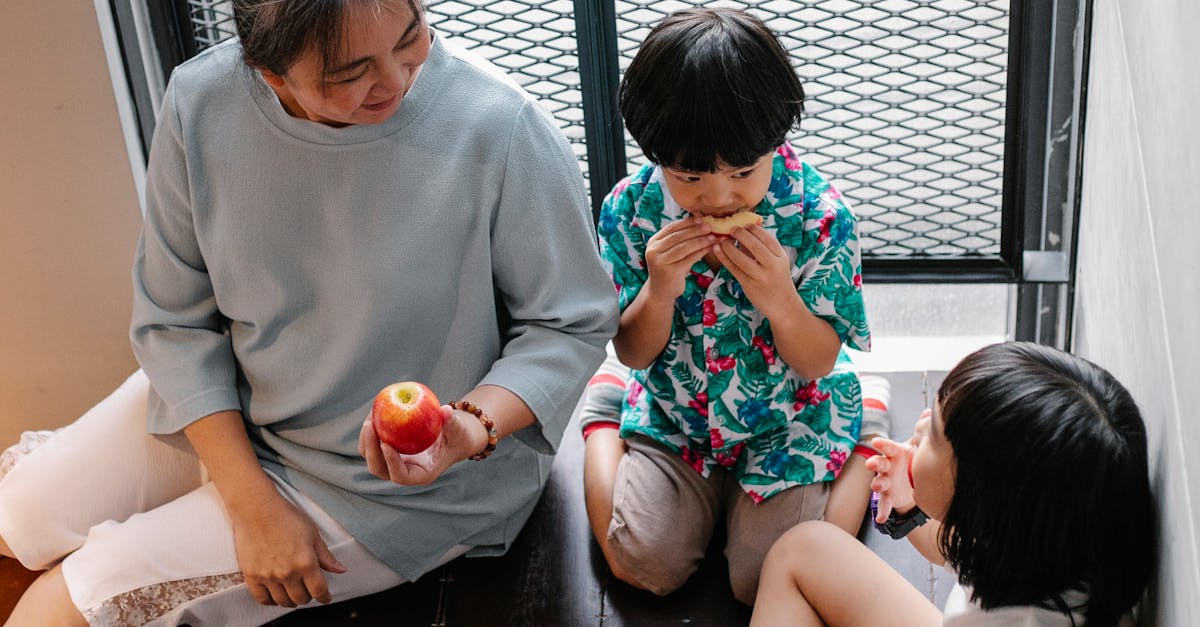Introduction
A healthy relationship is one where both partners feel respected, supported, and connected to each other. It is a relationship where both individuals are able to communicate openly and honestly, and where they feel safe and secure with each other. Understanding what to expect from a healthy relationship is crucial for anyone who wants to build a strong and lasting partnership.
In today's world, where relationships are often portrayed as disposable and temporary, it is important to recognize the value of a healthy relationship. A healthy relationship can provide a sense of stability and security, and can help individuals grow and develop as people.
Throughout this blog post, we will explore the different aspects of a healthy relationship, including trust, communication, respect, boundaries, support, independence, intimacy, connection, challenges, and conflict resolution. By understanding these different elements, you will be better equipped to build and maintain a healthy relationship that will stand the test of time.
So, whether you are currently in a relationship or looking to start one, this ultimate guide to understanding what to expect from a healthy relationship will provide you with the tools and knowledge you need to create a strong and fulfilling partnership. Let's dive in!
Table of Content
- Trust and Communication
- Respect and Boundaries
- Support and Independence
- Intimacy and Connection
- Challenges and Conflict Resolution
- Conclusion
Trust and Communication
Trust and communication are two of the most important aspects of a healthy relationship. Without trust, a relationship cannot thrive, and without communication, trust cannot be built or maintained. Trust is built over time through consistent actions and behaviors that demonstrate reliability, honesty, and integrity. It is important to be transparent with your partner and to follow through on your commitments. Trust can also be strengthened through open and honest communication.
Effective communication is essential for a healthy relationship. It involves actively listening to your partner, expressing your thoughts and feelings clearly and respectfully, and being open to feedback. Communication can be challenging at times, especially when discussing sensitive topics or when emotions are running high. However, it is important to approach these conversations with empathy and understanding.
One way to improve communication in a relationship is to establish ground rules for how you will communicate with each other. This can include setting aside time to talk without distractions, using "I" statements instead of "you" statements, and avoiding blame or criticism. It is also important to be aware of nonverbal communication, such as body language and tone of voice, as these can convey messages that may not align with your words.
In summary, trust and communication are essential components of a healthy relationship. Building and maintaining trust takes time and effort, but it is worth it in the long run. Effective communication involves active listening, clear expression, and empathy. By prioritizing trust and communication, you can cultivate a strong and healthy relationship with your partner.

Respect and Boundaries
Respect and boundaries are essential components of a healthy relationship. Mutual respect is the foundation of a strong and lasting relationship. It involves treating your partner with kindness, empathy, and understanding. Respect also means acknowledging your partner's feelings, opinions, and needs, even if they differ from your own.
Showing respect to your partner can take many forms. It can be as simple as listening to them when they speak, or as significant as supporting their goals and aspirations. Respect also means being considerate of your partner's feelings and avoiding actions that may hurt or offend them.
Boundaries are another crucial aspect of a healthy relationship. They are the limits that you set for yourself and your partner to ensure that both of you feel safe and comfortable in the relationship. Boundaries can be physical, emotional, or mental, and they vary from person to person.
Setting and respecting boundaries in a relationship requires open and honest communication. It involves discussing your needs and expectations with your partner and being willing to compromise when necessary. It also means respecting your partner's boundaries and avoiding actions that violate them.
In a healthy relationship, both partners should feel comfortable expressing their boundaries without fear of judgment or retaliation. Respecting each other's boundaries can help build trust and strengthen the relationship.
In summary, respect and boundaries are essential components of a healthy relationship. They involve treating your partner with kindness, empathy, and understanding, and setting and respecting limits to ensure that both partners feel safe and comfortable in the relationship. By prioritizing respect and boundaries, you can build a strong and lasting relationship based on trust and mutual understanding.

Support and Independence
In a healthy relationship, supporting your partner is crucial. It means being there for them through thick and thin, and providing emotional support when they need it the most. Emotional support can come in many forms, such as listening to them when they need to vent, offering words of encouragement, or simply being a shoulder to cry on. It's important to remember that everyone has their own struggles and challenges, and being there for your partner can make all the difference.
At the same time, it's also important to maintain a sense of independence in a relationship. Independence means having your own hobbies, interests, and goals outside of the relationship. It's important to have a life outside of your partner, and to not lose sight of your own identity. This can help prevent feelings of resentment or suffocation in the relationship.
Balancing support and independence can be a delicate dance, but it's important to find a healthy balance. Communication is key in this regard. Talk to your partner about your needs and expectations, and listen to theirs as well. Find ways to support each other while also maintaining your own sense of self. This can help create a strong and healthy foundation for your relationship.
Remember, a healthy relationship is not about being dependent on each other, but rather about supporting each other's growth and happiness. By finding a balance between support and independence, you can create a relationship that is fulfilling and long-lasting.

Intimacy and Connection
Intimacy and connection are essential components of a healthy relationship. Intimacy is not just about physical touch, but also emotional closeness and vulnerability. It is the feeling of being seen, heard, and understood by your partner. Connection, on the other hand, is the bond that holds a relationship together. It is the shared experiences, interests, and values that create a sense of togetherness.
To cultivate intimacy and connection in a relationship, it is important to prioritize quality time with your partner. This means setting aside distractions and focusing on each other. It could be as simple as having a conversation over dinner or taking a walk together. It is also important to engage in activities that you both enjoy and that allow you to connect on a deeper level.
Physical touch is also an important aspect of intimacy. This could be holding hands, hugging, or cuddling. It is important to communicate with your partner about what makes you feel comfortable and what your boundaries are.
In addition to physical touch, emotional intimacy is crucial for a healthy relationship. This means being vulnerable and sharing your thoughts and feelings with your partner. It is important to create a safe space where both partners feel comfortable opening up to each other.
Finally, it is important to maintain intimacy throughout the duration of a relationship. This means continuing to prioritize quality time, physical touch, and emotional vulnerability. It is easy for relationships to become stagnant, but by continuing to cultivate intimacy and connection, couples can continue to grow and strengthen their bond.

Challenges and Conflict Resolution
Challenges and conflicts are inevitable in any relationship, no matter how healthy it may be. However, it's how you handle these challenges that can make or break a relationship. In this section, we'll discuss some common challenges that couples face and how to navigate them in a healthy way.
One of the most common challenges in a relationship is communication breakdown. Misunderstandings and miscommunications can lead to hurt feelings and resentment. To avoid this, it's important to practice active listening and to express yourself clearly and honestly. Using "I" statements instead of "you" statements can also help prevent defensiveness and promote understanding.
Another challenge that couples face is differing expectations. It's important to have open and honest conversations about what you both expect from the relationship, whether it's regarding finances, household chores, or future plans. Compromise and flexibility are key in finding a solution that works for both partners.
Conflict resolution is also a crucial aspect of a healthy relationship. It's important to approach conflicts with a willingness to listen and understand the other person's perspective. Avoiding blame and focusing on finding a solution together can help prevent arguments from escalating. It's also important to take a break if emotions are running high and to come back to the conversation when both partners are calm and ready to communicate effectively.
In conclusion, challenges and conflicts are a natural part of any relationship, but they don't have to be detrimental. By practicing effective communication, setting clear expectations, and approaching conflicts with a willingness to listen and find a solution together, couples can navigate challenges in a healthy and productive way.

Conclusion
In conclusion, understanding what to expect from a healthy relationship is crucial for building and maintaining a strong and fulfilling partnership. Throughout this guide, we have explored the various components that make up a healthy relationship, including trust, communication, respect, boundaries, support, independence, intimacy, connection, and conflict resolution.
It is important to remember that a healthy relationship requires effort and commitment from both partners. It is not always easy, and there will be challenges along the way. However, by prioritizing open and honest communication, mutual respect, and a willingness to work through conflicts, you can build a relationship that is strong, supportive, and fulfilling.
Remember to prioritize self-care and maintain your own individuality, while also making time to connect with your partner on a regular basis. By doing so, you can cultivate a relationship that is both loving and supportive, while also allowing each partner to grow and thrive as individuals.
In summary, a healthy relationship is one that is built on a foundation of trust, respect, communication, support, and intimacy. By prioritizing these components and working through challenges together, you can build a relationship that is strong, fulfilling, and long-lasting.




